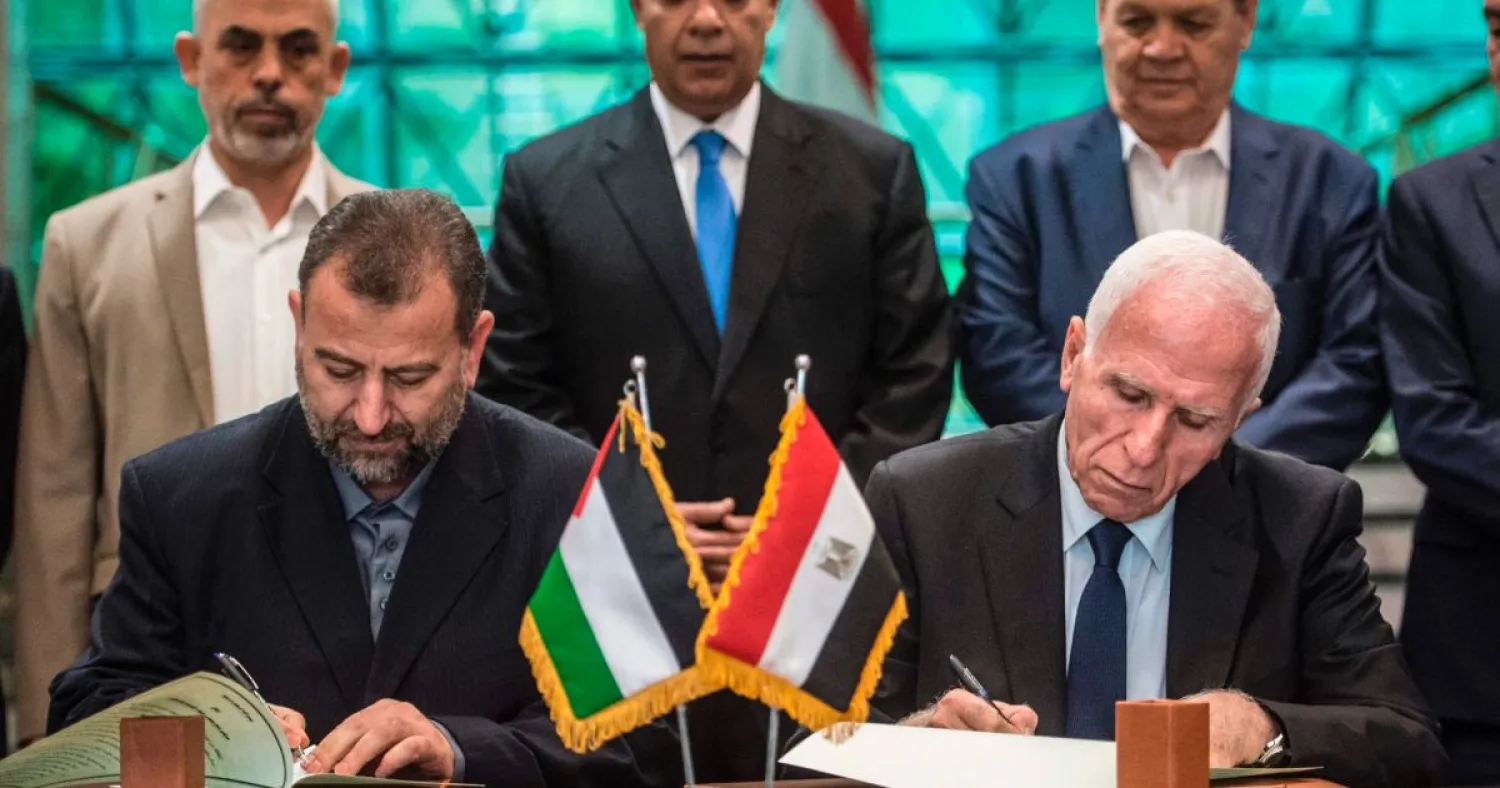A high-ranking Hamas delegation began a visit to Iran on Friday to inform its backers in Tehran about reconciliation efforts with rival Palestinian faction Fatah, an official statement from the Islamist movement said.
The delegation was led by recently appointed deputy Hamas chief Salah al-Aruri, which is his first visit since his appointment and the second since signing the reconciliation deal with Fatah in Cairo.
Members of the delegation will meet senior Iranian officials over the next several days, a member of Hamas movement said on condition of anonymity.
He added that the delegation will discuss means of strengthening and developing relations between Hamas and Iran and emphasize the continuation of Iran's continued financial and political support for the movement.
Ezzat Rashagh, the official responsible for Arab and Islamic relations, Mohammad Nasr, who is responsible for the relations between the two sides, Osama Hamdan, former head of the movement's foreign relations, Zaher Jabarin, a liberated captive, Sami Abu Zuhri and Khaled Ghodomi, head of the Hamas office in Tehran were among the delegation, a statement issued by Hamas movement said.
“The latest developments in the Palestinian arena, bilateral relations and developments in conflict with the Israeli occupation will also be discussed” the statement added.
The visit comes in light of Hamas's new approach to strengthening relations with Iran at the highest possible level as well as Iranian and Lebanese Hezbollah’s attempts to restore relations between Hamas and the Syrian regime, after years of major disagreements over Hamas’s stance on the Syrian developments.
Hamas and Iran have historically maintained close relations. But after Hamas refused to support the Iranian-backed Head of Syrian regime Bashar Assad in 2011 when a civil war broke out in Syria, ties between Hamas and Iran were believed to have soured.
However, Hamas Chief in Gaza Yahya Sinwar told a group of journalists in late August that his movement’s ties with Iran “were and still are good,” and noted that Iran had become the largest sponsor of Hamas’s armed wing, the Izzadin Kassam Brigades.









